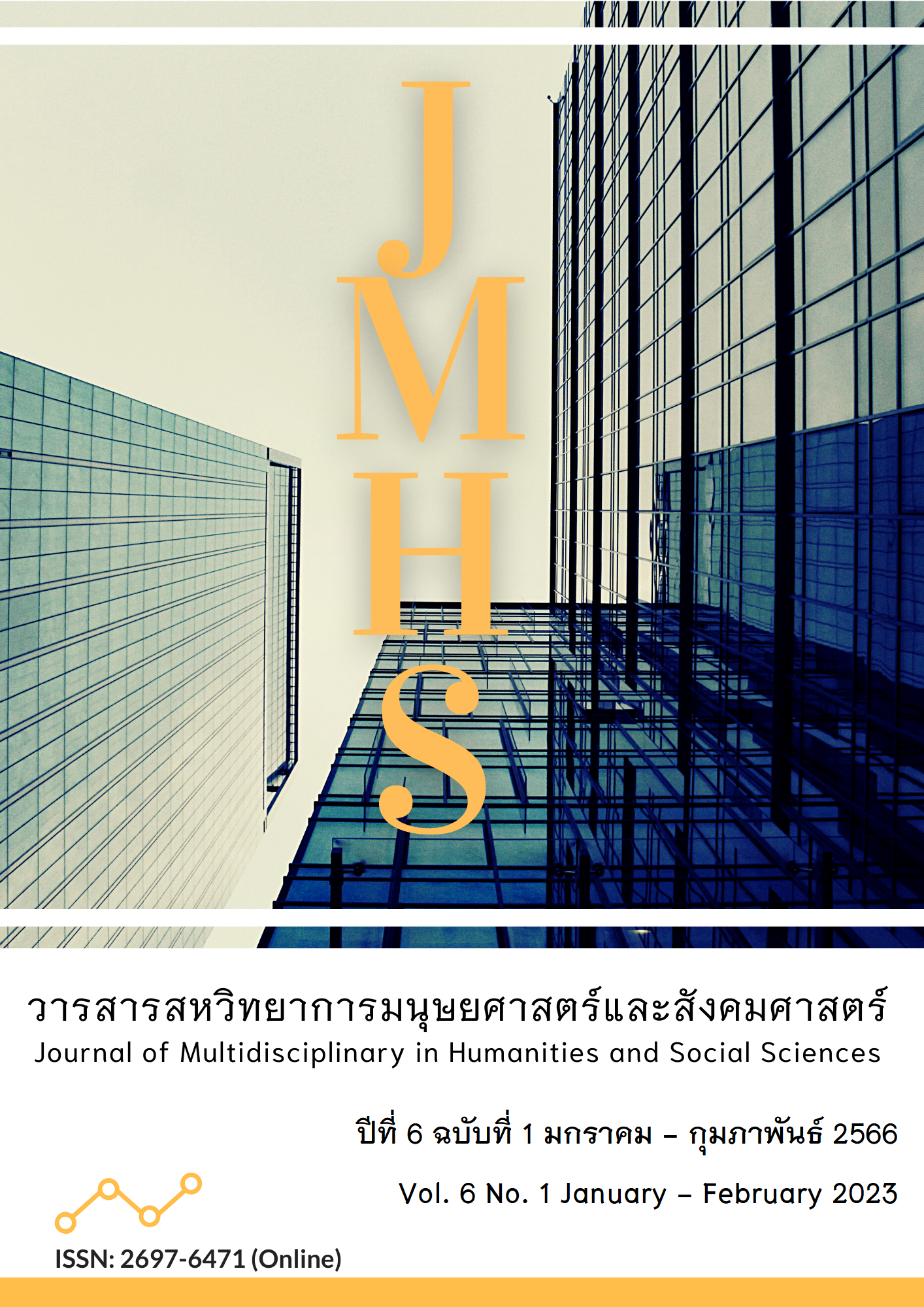ยุทธศาสตร์การบริหารจัดการศึกษาในพลวัตศตวรรษที่ 21 สู่การเป็นประชาคมอาเซียนอย่างยั่งยืนของกลุ่มประเทศในอนุภูมิภาคลุ่มแม่น้ำโขง
Main Article Content
บทคัดย่อ
ยุทธศาสตร์เป็นแผนการอันชาญฉลาดที่สามารถใช้ดำเนินการเพื่อบรรลุเป้าประสงค์ การวิจัยนี้มุ่งวิเคราะห์ยุทธศาสตร์การบริหารจัดการศึกษาในพลวัตศตวรรษที่ 21 สู่การเป็นประชาคมอาเซียนอย่างยั่งยืน การวิจัยแบบผสมผสานวิธีร่วมกับการแลกเปลี่ยนเรียนรู้อย่างมีส่วนร่วม ในการศึกษากับ 6 กลุ่มประเทศในอนุภูมิภาคลุ่มแม่น้ำโขง การเก็บรวบรวมข้อมูลการศึกษาเชิงคุณภาพจากการศึกษาเอกสาร การสัมภาษณ์เชิงลึกที่อาศัยการวิเคราะห์มุมมองพหุบริบทและวัฒนธรรม ด้วยแบบสัมภาษณ์กับกลุ่มเป้าหมายผู้ให้ข้อมูลสำคัญที่เป็นผู้บริหารระดับกระทรวง และผู้บริหารระดับสถานศึกษาขั้นพื้นฐาน จำนวน 60 คน การศึกษาเชิงปริมาณจากการสำรวจด้วยแบบสอบถามกับกลุ่มตัวอย่าง จำนวน 480 คน นำสู่การวิเคราะห์ข้อมูลเชิงคุณภาพอาศัยการวิเคราะห์ ใน 3 ขั้นตอน คือ การลดทอนข้อมูล การจัดระบบข้อมูล การตีความ นำไปสู่บทสรุป ส่วนการวิเคราะห์ข้อมูลเชิงปริมาณ โดยใช้สถิติเชิงพรรณนา ค่าเฉลี่ย และส่วนเบี่ยงเบนมาตรฐาน และวิเคราะห์องค์ประกอบเชิงยืนยัน โดยใช้โปรแกรมลิสเรล ผลการวิจัยพบว่า ยุทธศาสตร์การบริหารจัดการศึกษาในพลวัตศตวรรษที่ 21 ประกอบด้วย 10 องค์ประกอบ ได้แก่ ผู้นำการศึกษา การสร้างขีดความสามารถทางการศึกษา การสร้างประสิทธิภาพของทรัพยากรมนุษย์ การสร้างความเท่าเทียมทางการศึกษา การมีส่วนร่วมบนพื้นฐานของความร่วมมือ การสร้างองค์ความรู้การเป็นพลเมืองโลก การสร้างพลเมืองดิจิทัล ระบบเครือข่าย การเชื่อมต่อประสานกัน และการประเมินตามสภาพจริง โดยทั้ง10องค์ประกอบของยุทธศาสตร์ มีความสอดคล้องกับข้อมูลเชิงประจักษ์อย่างมีนัยสำคัญทางสถิติ ที่ระดับ 0.01
องค์ความรู้จากงานวิจัยนี้ สามารถนำไปประยุกต์ใช้ในการขับเคลื่อนยุทธศาสตร์การบริหารจัดการศึกษาจากการยกระดับคุณภาพการศึกษา สร้างความร่วมมือบนฐานการมีส่วนร่วม ภายใต้การเปลี่ยนแปลงในพลวัตศตวรรษที่ 21 อย่างมีศักยภาพ
Article Details

อนุญาตภายใต้เงื่อนไข Creative Commons Attribution-NonCommercial-NoDerivatives 4.0 International License.
ทัศนะและความคิดเห็นที่ปรากฏในวารสาร ถือเป็นความรับผิดชอบของผู้เขียนบทความนั้น และไม่ถือเป็นทัศนะและความรับผิดชอบของกองบรรณาธิการ
เอกสารอ้างอิง
กนกอร สมปราชญ์. (2557). การบริหารเชิงกลยุทธ์. กรุงเทพฯ: ซัคเซสมีเดีย.
กรมอาเซียน กระทรวงการต่างประเทศ. (2555, 26 พฤศจิกายน). ประชาคมอาเซียน. สืบค้นเมื่อ 4 กันยายน 2565, จาก https://image.mfa.go.th/mfa/0/OcXc7u4THG/migrate_directory/asean-media-center-20121126-190330-788160.pdf
เกษม วัฒนชัย. (2556). ธรรมาภิบาลกับบทบาทคณะกรรมการสถานศึกษาขั้นพื้นฐาน. กรุงเทพฯ: สำนักนโยบายและแผนการศึกษา.
เกรียงศักดิ์ เจริญวงศ์ศักดิ์. (2557). ยุทธศาสตร์กับการคิดสร้างสรรค์. กรุงเทพฯ: ซัคเซสมีเดีย.
เทิดพงษ์ ศรีวิเศษ และ เอกชัย กี่สุขพันธ์. (2557). การบริหารสถานศึกษาเพื่อความพร้อมสู่ประชาคมอาเซียนของโรงเรียน สังกัดสำนักงานเขตพื้นที่การศึกษามัธยมศึกษาเขต 2. วารสารอิเล็กทรอนิกส์ทางการศึกษา, 9(1), 583-597. สืบค้นจาก https://so01.tci-thaijo.org/index.php/OJED/article/view/20604
ธีระ รุญเจริญ. (2553). ความเป็นมืออาชีพและบริหารการศึกษา. (พิมพ์ครั้งที่ 7). กรุงเทพฯ: ข้าวฟ่าง.
นิพนธ์ กินาวงศ์. (2554). หลักการบริหาร. พิษณุโลก: โรงพิมพ์ตระกูลไทย.
พรชัย เจดามาน, สนิท ตีเมืองซ้าย, สุทธิพงศ์ หกสุวรรณ์ และ ประมุข ศรีชัยวงษ์. (2563). การพัฒนาคุณลักษณะภาวะผู้นำแบบเหนือชั้นอย่างยั่งยืนที่ส่งผลต่อความพึงพอใจในงานและความผูกพันองค์กรของบุคลากรทางการจัดการศึกษา. วารสารมนุษย์ศาสตร์และสังคมศาสตร์ มหาวิทยาลัยนครพนม, 13(1), 71- 82.
สืบค้นจาก https://so03.tci-thaijo.org/index.php/npuj/article/view/ 249484
ไพฑูรย์ พิมดี, พรชัย เจดามาน, เผชิญ กิจระการ, อัคพงศ์ สุขมาตย์, กลวัชร วังสะอาด และ เจริญ สุขทรัพย์ (2560). การพัฒนาการศึกษาภายใต้กรอบประเทศไทย 4.0 สู่ศตวรรษที่ 21. วารสารครุศาสตร์อุตสาหกรรม, 16(2), 199-206. สืบค้นจาก https://ph01.tci-thaijo.org/index.php/JIE/ article/view/132985
วิจารณ์ พานิช. (2554). การศึกษาที่มีคุณภาพสำหรับศตวรรษที่ 21. กรุงเทพฯ: สมาคมเครือข่ายพัฒนาวิชาชีพอาจารย์และองค์กรระดับอุดมศึกษาแห่งประเทศไทย.
สมชาย ภคภาสน์วิวัฒน์. (2554). การบริหารเชิงกลยุทธ์. (พิมพ์ครั้งที่ 7). กรุงเทพฯ: สำนักพิมพ์อมรินทร์.
เสริมศักดิ์ วิศาลาภรณ์. (2556). ภาวะผู้นำ. นนทบุรี: มหาวิทยาลัยสุโขทัยธรรมมาธิราช.
สำนักงานเลขาธิการสภาการศึกษา. (2561). ยุทธศาสตร์ชาติ ระยะ 20 ปี ปรับปรุงใหม่ (พ.ศ. 2561-2580). กรุงเทพฯ: สำนักงานเลขาธิการสภาการศึกษา.
สำนักงานเลขาธิการสภาการศึกษา. (2560). นโยบายและยุทธศาสตร์การพัฒนาคุณภาพการศึกษา. กรุงเทพฯ: สำนักงานเลขาธิการสภาการศึกษา.
Abraham, S.C. (2016). Strategic Planning a Practical Guide for Competitive Success. Ohio: Thomson South-Western.
Dejon, W.L. (2018). Principles of Management: Text & Cases. California: Benjamin/Cummings Publishing Company.
Epstein, J.L. (2005). School-initiated Family and Community Partnerships. In T. Erb (Ed.), This we believe in action: Implementing successful middle level schools. Ohio: National Middle School Association.
Forcadell, F.J., & Guadamillas, F. (2002). A Case Study on the Implementation of a Knowledge Management Strategy Oriented to Innovation. Knowledge and Process Management, 9(3), 162-171. https://doi.org/10.1002/kpm.143
Gopinath, C., & Siciliano, J. (2005). Strategize Experiential Exercises in Strategic Management. (2nd ed.). Ohio: Thomson South-Western.
Hoy, W.K., & Miskel, C.G. (2010). Educational Administration: Theory Research and Practice. (4th ed.). Singapore: McGraw-Hill.
Robbins, S.P., & Coulter, M. (2007). Organization Theory: Structure, Design, and Applications. New Jersey: Prentice-Hall.
Rodgers, C.G. (2014). Teacher Perceptions of Total Quality Management Practices in Elementary School. Pro Quest File: Dissertation.


